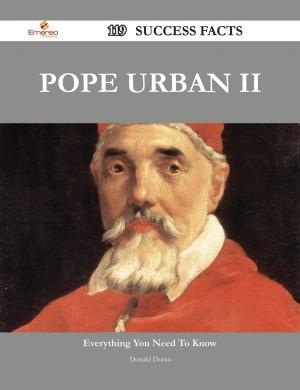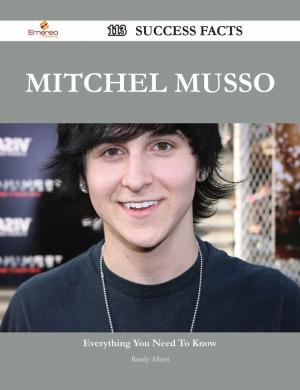Secret Chambers and Hiding Places - The Original Classic Edition
Nonfiction, Reference & Language, Reference, Fiction & Literature| Author: | Fea Allan | ISBN: | 9781486414963 |
| Publisher: | Emereo Publishing | Publication: | October 24, 2012 |
| Imprint: | Emereo Publishing | Language: | English |
| Author: | Fea Allan |
| ISBN: | 9781486414963 |
| Publisher: | Emereo Publishing |
| Publication: | October 24, 2012 |
| Imprint: | Emereo Publishing |
| Language: | English |
In the secret chamber, however, we have something tangible to deal with-a subject not only keenly interesting from an antiquarian point of view, but one deserving the attention of the general reader; for in exploring the gloomy hiding-holes, concealed apartments, passages, and staircases in our old halls and manor houses we probe, as it were, into the very groundwork of romance. We find actuality to support the weird and mysterious stories of fiction, which those of us who are honest enough to admit a lingering love of the marvellous must now doubly appreciate, from the fact that our school-day impressions of such things are not only revived, but are strengthened with the semblance of truth. Truly Bishop Copleston wrote: If the things we hear told be avowedly fictitious, and yet curious or affecting or entertaining, we may indeed admire the author of the fiction, and may take pleasure in contemplating the exercise of his skill. But this is a pleasure of another kind-a pleasure wholly distinct from that which is derived from discovering what was unknown, or clearing up what was doubtful. And even when the narrative is in its own nature, such as to please us and to engage our attention, how, greatly is the interest increased if we place entire confidence in its truth! Who has not heard from a child when listening to a tale of deep interest-who has not often heard the artless and eager question, Is it true?
From Horace Walpole, Mrs. Radcliffe, Scott, Victor Hugo, Dumas, Lytton, Ainsworth, Le Fanu, and Mrs. Henry Wood, down to the latest up-to-date novelists of to-day, the secret chamber (an ingenious necessity of the good old times) has afforded invaluable property-indeed, in many instances the whole vitality of a plot is, like its ingenious opening, hinged upon the masked wall, behind which lay concealed what hidden mysteries, what undreamed-of revelations! The thread of the story, like Fair Rosamonds silken clue, leads up to and at length reveals the buried secret, and (unlike the above comparison in this instance) all ends happily!
Apart, however, from the importance of the secret chamber in fiction, it is closely associated with many an important historical event. The stories of the Gunpowder Plot, Charles II.s escape from Worcester, the Jacobite risings of 1715 and 1745, and many another stirring episode in the annals of our country, speak of the service it rendered to fugitives in the last extremity of danger. When we inspect the actual walls of these confined spaces that saved the lives of our ancestors, how vividly we can realise the hardships they must have endured; and in wondering at the mingled ingenuity and simplicity of construction, there is also a certain amount of comfort to be derived from drawing a comparison between those troublous and our own more peaceful times.
In the secret chamber, however, we have something tangible to deal with-a subject not only keenly interesting from an antiquarian point of view, but one deserving the attention of the general reader; for in exploring the gloomy hiding-holes, concealed apartments, passages, and staircases in our old halls and manor houses we probe, as it were, into the very groundwork of romance. We find actuality to support the weird and mysterious stories of fiction, which those of us who are honest enough to admit a lingering love of the marvellous must now doubly appreciate, from the fact that our school-day impressions of such things are not only revived, but are strengthened with the semblance of truth. Truly Bishop Copleston wrote: If the things we hear told be avowedly fictitious, and yet curious or affecting or entertaining, we may indeed admire the author of the fiction, and may take pleasure in contemplating the exercise of his skill. But this is a pleasure of another kind-a pleasure wholly distinct from that which is derived from discovering what was unknown, or clearing up what was doubtful. And even when the narrative is in its own nature, such as to please us and to engage our attention, how, greatly is the interest increased if we place entire confidence in its truth! Who has not heard from a child when listening to a tale of deep interest-who has not often heard the artless and eager question, Is it true?
From Horace Walpole, Mrs. Radcliffe, Scott, Victor Hugo, Dumas, Lytton, Ainsworth, Le Fanu, and Mrs. Henry Wood, down to the latest up-to-date novelists of to-day, the secret chamber (an ingenious necessity of the good old times) has afforded invaluable property-indeed, in many instances the whole vitality of a plot is, like its ingenious opening, hinged upon the masked wall, behind which lay concealed what hidden mysteries, what undreamed-of revelations! The thread of the story, like Fair Rosamonds silken clue, leads up to and at length reveals the buried secret, and (unlike the above comparison in this instance) all ends happily!
Apart, however, from the importance of the secret chamber in fiction, it is closely associated with many an important historical event. The stories of the Gunpowder Plot, Charles II.s escape from Worcester, the Jacobite risings of 1715 and 1745, and many another stirring episode in the annals of our country, speak of the service it rendered to fugitives in the last extremity of danger. When we inspect the actual walls of these confined spaces that saved the lives of our ancestors, how vividly we can realise the hardships they must have endured; and in wondering at the mingled ingenuity and simplicity of construction, there is also a certain amount of comfort to be derived from drawing a comparison between those troublous and our own more peaceful times.















